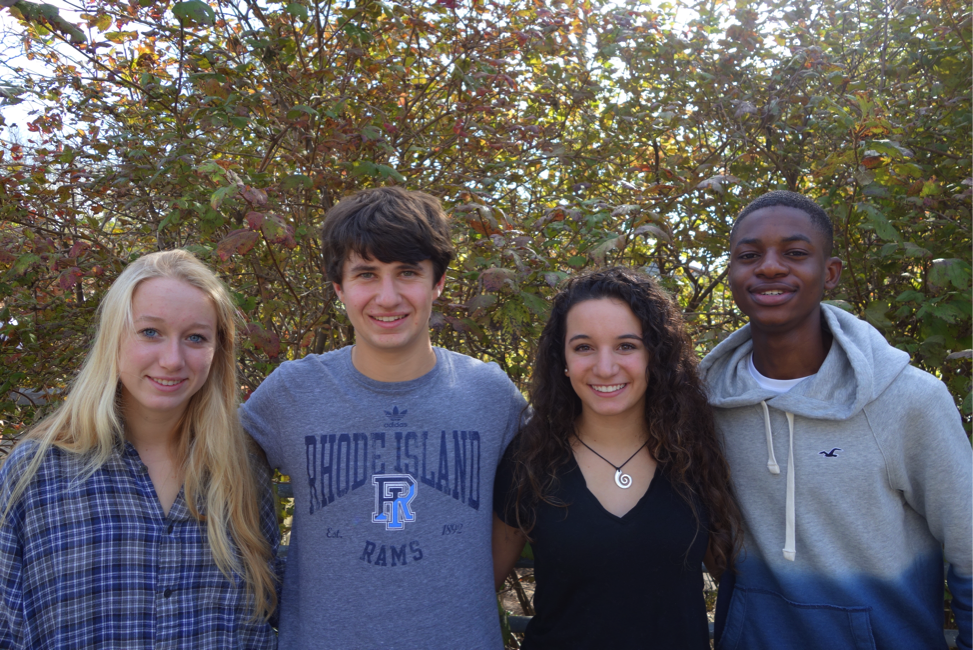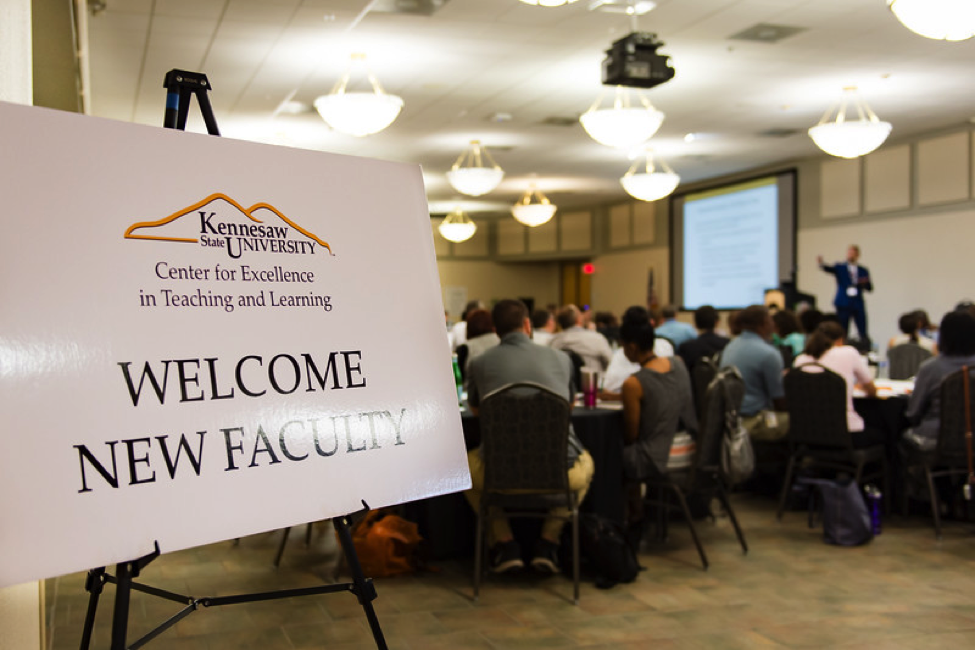In the final post of the guest blog series on “Working with Faculty to Promote Metacognition,” Dr. Eric Kaldor discusses lessons learned from the implementation of a campus-wide metacognition program inspired by Saundra McGuire’s work. The associated research project was awarded the Robert J. Menges Award for Outstanding Research in Educational Development by the Professional and Organizational Development (POD) Network.
by Eric Kaldor, Ph.D.; Associate Director, Sheridan Center for Teaching & Learning, Brown University
For many faculty members, the “fact” that some students are just not capable of college-level learning remains part of the taken-for-granted assumptions embedded in the culture of disciplines and campuses. Despite significant efforts to share insights from the scholarship on metacognition and growth mindsets (e.g. Doyle & Zakrajsek, 2013; Dweck, 2016; McGuire, 2015; Nilson, 2013), campus cultures are slow to change, and fixed mindsets continue to dominate many institutions. This post describes efforts to change the culture at the University of Rhode Island, the communication strategy we used, and some lessons learned.
With approximately 14,000 undergraduate students and 1,000 full and part-time faculty, the University of Rhode Island is a challenging setting to advance culture change. Our story began with a conversation with Melvin Wade, former Director of the Multicultural Student Services Center (MSSC). I was working in the Office for the Advancement of Teaching & Learning (ATL) and planning for Saundra McGuire to visit our campus. I was particularly concerned to fill our 1,000-person auditorium with students for her “Metacognition is Key” workshop. When I asked for his advice, Melvin insisted we must ensure her visit had a lasting impact on our campus. Toward this end, we assembled a group of professional staff and graduate students from ATL, the MSSC, the Academic Enhancement Center, First-Year Programs, and Professional Advising. Over a series of conversations, this informal group conceived of something we came to call the Ace-Your-Course (AYC) Challenge. We assumed we would only run the AYC Challenge once as a companion to Dr. McGuire’s workshop. Instead, a snowstorm gave the Challenge a much longer life.
Building on the McGuire Model
We designed the AYC Challenge to extend students’ metacognitive experience and reflections beyond Dr. McGuire’s workshop. We developed the AYC Challenge as four weekly self-assessment surveys (for detailed description see Kaldor & Swanson, 2019) to create additional metacognitive experiences (Flavell, 1979) by encouraging students to:
- Test learning strategies relevant to them individually.
- Engage in key practices for metacognitive reflection: observation, description, evaluation, and action planning.
- Feel part of a larger community working to grow as learners.
When a snowstorm postponed Dr. McGuire’s visit to the next semester, our multi-unit team led her workshop twice using slides and talking points from her book (McGuire, 2015) and invited students to participate in the AYC Challenge. Of the 240 students attending a workshop, 50 completed all four weeks of the challenge. After we shared the positive results from our pilot with faculty members, many encouraged their students to attend Dr. McGuire’s rescheduled workshop in September 2017. Some went further and agreed to share grade data as part of an IRB-approved study to examine how participation affected grades. We specifically identified a set of gateway science courses from Chemistry, Biology, and Nutrition and Food Sciences that have large enrollments of first-year students.
Over 1,000 students attended Dr. McGuire’s workshop with some in remote viewing locations, and 202 of those completed the second AYC Challenge. The self-reported results for this larger group were strikingly similar to those from students in the pilot AYC Challenge when we led the workshops. Holly Swanson and I analyzed final grades for 979 students in the eight gateway science sections (347 attended the workshop and of those 55 completed the challenge) using OLS regression with controls for several predictors of academic performance including high school GPA and exam 1 z-score. Compared with their peers who did not attend the workshop or participate in the challenge, attending the workshop and completing the AYC Challenge was associated with a final course grade half of a letter grade higher (Kaldor & Swanson, 2018).
Inclusive and Extensive Communication
Much of our success originated from a spiral of communication that grew outwards from a core group of professional staff and graduate students who became involved in planning for Dr. McGuire’s originally scheduled visit. Our colleagues working in various student support services helped develop a plan to reach students and motivate them to attend the workshop and participate in the challenge. These colleagues advised us on when to hold the workshop, how to market our efforts, and what kinds of messages would appeal to students.
One critical piece of advice was that students were more likely to attend if instructors offered extra credit. In the faculty development office, we knew that instructors of large enrollment courses would only offer extra credit if it did not add significant work. Using google forms, a mail merge add-on, card swipe readers, and course rosters, we developed a system for students to pre-register, receive reminder emails, and swipe their id cards after the workshop. With this system in place, instructors for over 30 courses received a list of student attendees within a week of the workshop.
To nudge students who attended the workshop to start the Challenge and complete all four weeks, we used two techniques. First, students were told that completing all four weeks would make them eligible for a drawing for ten $100 gift cards to the campus book store. Second, we started the Challenge at the end of the workshop with students selecting one or more strategies to try on a Google form at the end of the workshop.

The next spiral outwards involved engaging more faculty in a conversation on the powerful ways they could help their students learn. Prior initiatives that had promoted Dweck’s (2016) insights on growth mindsets had primed many faculty and staff for these conversations. Specifically, they wanted to know what else they could do beyond promoting a growth mindset, and a metacognitive approach to learning strategies offered them concrete answers.
In addition, faculty members who had moved away from fixed mindsets about who could succeed in their courses shared their insights on how to approach their still skeptical peers. We developed a strategy of presenting quantitative data alongside student voices to describe the student experience (examples are available here: https://web.uri.edu/atl/ace-your-course-challenge/). Initially, our quantitative data was limited to student self-reports. With the benefit of a snowstorm, we had the chance to organize an IRB approved research project to answer important questions that skeptics raised.
As we shared this data on campus, we were asked to try different permutations of the Metacognition Workshop plus AYC Challenge in two different settings – a support program for conditionally readmitted students and two gateway chemistry courses. In addition, we were asked to offer workshops for professional staff and faculty so they could include McGuire’s approach in their programs and courses.
One of the most successful workshops, “Teach Your Students How to Learn in 50-minutes” provided an annotated version of Dr. McGuire’s slides with breakout discussions about the key messages to motivate students. This led many instructors to experiment with including different elements of her metacognitive approach to learning strategies into their courses.
Some Lessons Learned and Suspected
Each AYC Challenge has generated new data and insights into the potential for URI students to make significant gains in their metacognition. This new data has generated new conversations, which have led to variations on the McGuire workshop and/or the AYC Challenge. This has been a fruitful if unintended process.
Our skeptical internal voice continues to ask how we could nudge more students into participating. We noticed lower participation rates for students from historically marginalized groups in our gateway science course study. This led us to experiment with embedding the workshop plus challenge into courses, but our early experience raised many concerns around overloading instructors and maintaining fidelity with the core AYC challenge experience.
In a promising next iteration, my URI colleague Michelle Fontes-Barros has suggested a partnership with student organizations and clubs, particularly STEM affinity groups for students from historically marginalized groups. Convinced of the value, a student group might sponsor a workshop in a regular meeting space. Student leaders might promote peer commitments to complete the AYC Challenge. Past AYC Challenge participants might help present the workshop and send messages during the Challenge to encourage persistence. This next iteration has the potential to be much more student-centered, but it will be important to critically evaluate the student experience and share results with the wider university community to energize the campus conversation on metacognitive development.
Doyle, T., & Zakrajsek, T. (2013). The New science of learning: How to learn in harmony with your brain. Sterling, VA: Stylus Publishing.
Dweck, C. S. (2016). Mindset: The new psychology of success (Updated Edition). New York, NY: Ballantine Books.
Flavell, J. H. (1979). Metacognition and cognitive monitoring: A new area of cognitive developmental inquiry. American Psychologist, 34(10), 906–911.
Kaldor, E., & Swanson, H. (2018, November). A campus-wide strategy to develop metacognition in gateway science courses. Paper presented at the POD Network Conference, Portland, Oregon.
Kaldor, E., & Swanson, H. (2019). How can you elevate metacognition on your campus? Try the Ace-Your-Course Challenge. The National Teaching & Learning Forum, 28(2), 5–7.
McGuire, S. Y. (2015). Teach students how to learn: Strategies you can incorporate into any course to improve student metacognition, study skills, and motivation. Sterling, VA: Stylus Publishing.
Nilson, L. B. (2013). Creating self-regulated learners: Strategies to strengthen students’ self-awareness and learning skills. Sterling, VA: Stylus Publishing.


